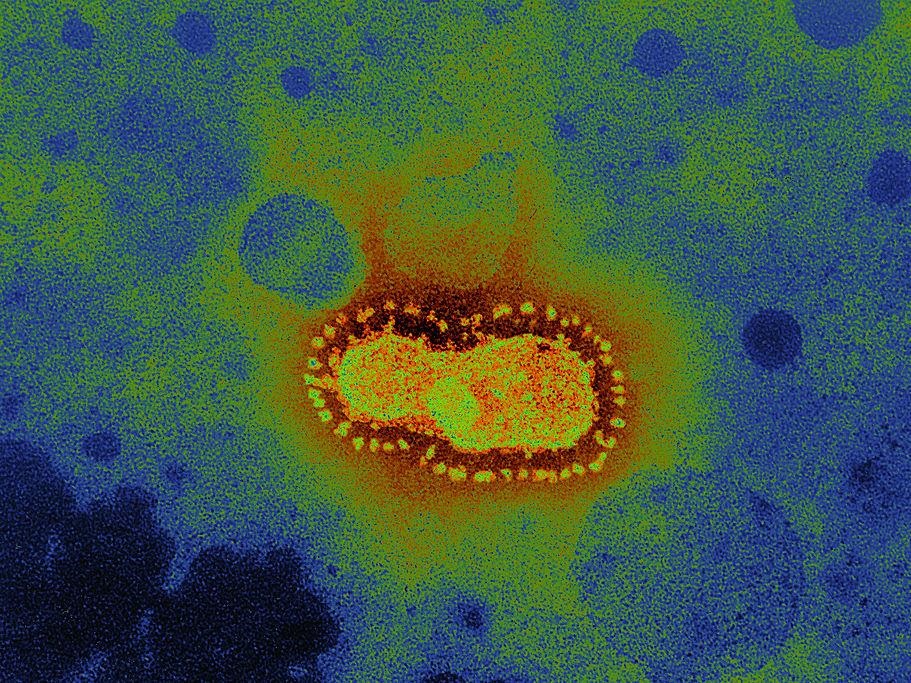South Africa: No generators mean no vaccines, and 5 other things we learnt about govt’s vaccine plans
- You may have trouble getting a Covid-19 vaccine in South Africa if you don't have internet access.
- And if you live far away from a public health facility with a generator, that could be an issue too.
- The department of health held a webinar about the first phase of SA's vaccine plans on Wednesday night.
- Here's what we learnt.
You'll need the means to get online, and to prove your identity, to get in line for a Covid-19 vaccine in South Africa.
And if your local public health facility doesn't have a generator, you could be out of luck.
The department of health held a webinar late into Wednesday night to talk – mostly in broad strokes – about the state of SA's vaccine plans.
Here's what we learnt.
You'll need internet access, a cellphone number, and an ID book to get on the list for vaccinations
The healthcare workers who are due to receive top priority, workers vaccinated via their employers, and uninsured people will all have to register via government's Electronic Vaccine Data System (EVDS) to get an appointment.
The EVDS uses an online "self enrolment" portal. Those who qualify for a shot are sent an SMS with a time and place, and must show a unique code to the vaccinator. They must also show ID at the vaccination site.
There is no mention yet of an alternative way to book a vaccine, for those without internet access or ID documents.
After the second dose of the vaccine (the majority of vaccines are expected to be two-dose versions), an "electronic vaccination certificate" is due to be available via the same EVDS online platform.
Private doctors and nurses will be paid between R50 and R60 per vaccination on behalf of the state
Private providers who handle vaccinations as contractors to the state are due to be paid between R50 and R60 per vaccination, including VAT, said health department advisor Aquina Thulare.
The state will prefer to administer its own shots at public facilities, she said, but as with other medical services, it intends to outsource some of the work to private providers. High up on the list will be pharmacies that can guarantee their cold chains, while GPs in private practice are expected to do injections, especially in far-flung parts of the country.
Though the cost of administering shots has apparently been set, there are still negotiations on whether private pharmacies will be paid an administration fee when they dispense Covid-19 vaccines.
Whether medical aids pay double or triple for vaccines has not yet been determined
Thulare confirmed discussion, and agreement in principal, that the single exit price (SEP) set by government for vaccines will be much higher than the actual cost, to direct money from medical schemes to the state to pay for vaccines.
The extra doses medical aids effectively pay for may be at at ratio of 1:1, or 2:1, but the exact figures will depend on which vaccines are used, and "only when we have the exact types of vaccines that we can give an exact figure of what it is".
Mining companies say they can vaccinate 1.5 million people a month – if they have vaccines
"We’ve actually worked out that the industry can administer about 60,000 to 80,000 vaccines a day, so within two months we could vaccinate between 2.5 million to 3 million people," the head of health for the Minerals Council, Thuthula Balfour, told the webinar.
That would amount to about five extra people vaccinated per mineworker, or around 7.5% of the total targeted population to achieve herd immunity.
There's just one impediment: access to the vaccine.
Isolated communities with poorly-managed healthcare facilities may be last in the queue
Technocrats are putting a heavy emphasis on not wasting precious vaccine doses, and have optimised planning to avoid that.
Which could leave some rural communities at the end of the queue.
Asked about the risk load shedding poses to temperature-sensitive vaccines, health department deputy-director Anban Pillay said vaccines "won't be stocked where there are no generators".
That will include many rural clinics, and even hospitals that do not have functioning backup power.
Distribution will use a hub-and-spoke model, with central hubs that can guarantee security, and continuous electricity, Pillay said.
The auditor-general is already involved in attempts to prevent corruption in the process
His department had already put before the office of the auditor-general "all the approaches that we're taking to make sure that at the end of it they can give us a sense of checks and balances they are going to suggest as we deal with the risks associated with this process," said health minister Zweli Mkhize about efforts to prevent dodgy dealings in the massive vaccine rollout.
"We want to make sure there is no corruption... at the end of this programme we must all remember how well the vaccination programme was executed, but not so much be distracted by how much corruption happened at that time."
https://www.businessinsider.co.za/what-we-learnt-from-the-sa-governments-vaccine-webinar-2021-1


No comments:
Post a Comment